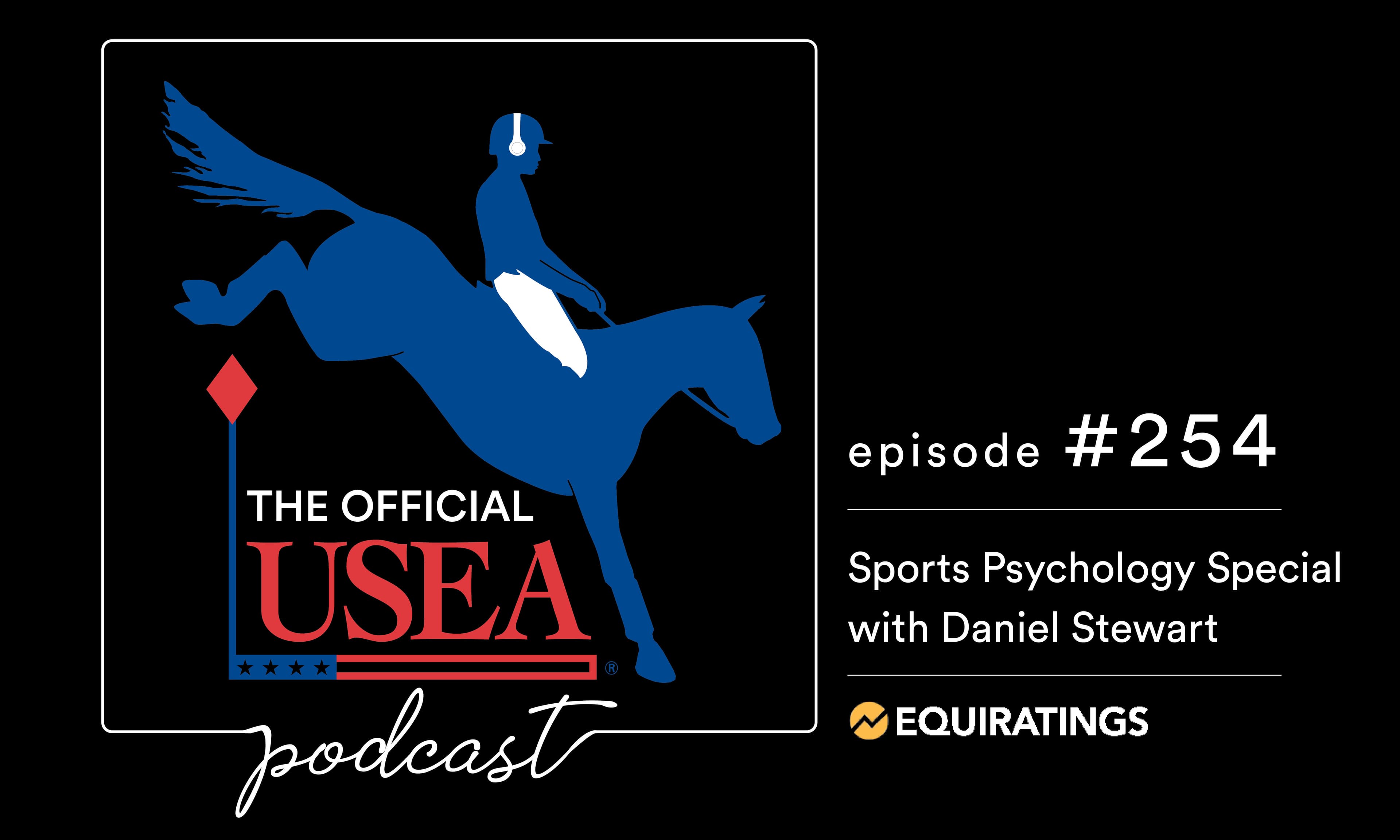Association News
USEA Podcast #254: Sports Psychology Special with Daniel Stewart

In this brand new episode of the USEA Podcast, Nicole and Diarm speak to world-renowned sports psychologist Daniel Stewart. Packed full of top tips to manage nerves in training, competition, and everyday life, as well as tips on how to stay positive and motivated during this challenging time in the world, this is a must-listen show for anyone looking to build a positive mindset.
- Stewart starts us off with a definition of the two branches of sports psychology: clinical and educational. Educational sports psychology, which is the focus of Stewart's work, can be applicable for all riders from beginners just starting out to the high performance competitors.
- Stewart asserts that in every case, it is important to first define what success looks like. Without a definition of success, it's a bit like having a destination in mind with no road map to get there.
- Outgrouping, which Stewart defines as "wonder, wish, and worry about others," can be a common roadblock when it comes to defining success. It is important, he says, to focus on things within your control, rather than things outside your control. However, the unpredictable nature of equestrian sports complicates that issue because the rider can do everything "right" and things can still go wrong. To combat this issue, Stewart advocates for focusing on the process rather than the outcome.
- Stewart suggests defining goals "on a ladder" - going for goals one step at a time. Immediate goals are goals that we can set and achieve in a single day. Stewart says these goals are the "spark that lights the fire," that gets you excited about achieving your ultimate goal. The next "wrung of the ladder" is the short-term goal. There may be several of these, all to be achieved along the way to that ultimate goal.
- Stewart leads listeners through a program he calls "How Not to Get to Thank You Yet." These tips and tricks are helpful in shifting from a scarcity mindset to an abundance mindset.
- The first step revolves around the word "How." Instead of asking yourself simply to do something, ask yourself how you will do that thing.
- Tell yourself what to do versus what not to do. Direct your intentions towards the positive instead of the negative.
- Switch the phrase "have to" with the phrase "get to." Instead of, "I have to go to the barn," say, "I get to go to the barn." It turns obligations into opportunities.
- Error-based learning is the learning that takes place immediately after making a mistake. Stewart says to say "thank you" to yourself for making these mistakes as they are your greatest opportunity for learning.
- By adding the word "yet" to the end of the phrase, "I can't do it," you create the belief that you will one day achieve what today you cannot.
- Stewart rounds out the program by explaining the concept of telescoping bias. We look at our weaknesses, failures, and mistakes as if through a telescope - making them appear larger than they actually are. We also tend to look at our strengths, abilities, and successes through the wrong end of the telescope - making them appear less significant than they actually are. "Turn the telescope around," Stewart says.
- To read more tips from Daniel Stewart, check out his Tips of the Month.
Subscribe to the USEA Official Podcast on Apple Podcasts, Spotify, PodBean, or Stitcher, or click below to listen in!












